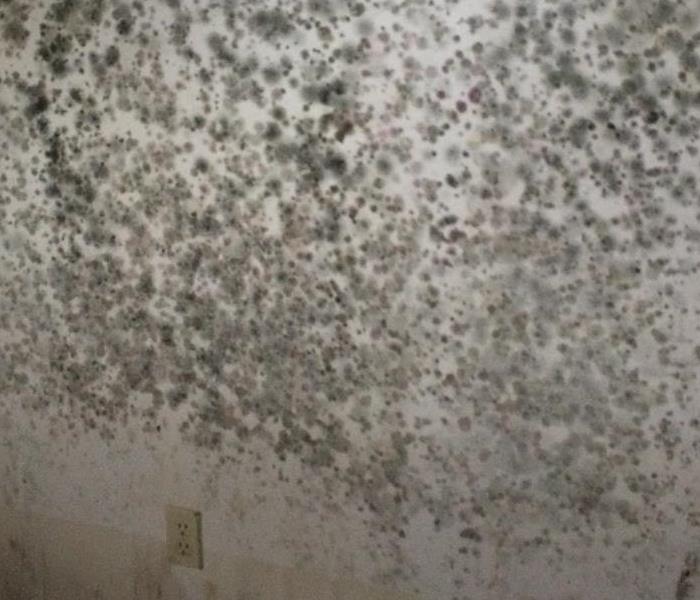Mold in Commercial Buildings
2/19/2018 (Permalink)
Many types of mold exist and all molds have the potential to cause health effects. One of the myths regarding mold is that people believe ALL mold is bad. Mold is used in the making of penicillin. Penicillin is an antibiotic that is commonly used for treating certain infections caused by bacteria such as pneumonia, ear, skin and throat infections. So you see, not all mold is bad. Blue cheese is also made with mold. Now, I know what you are thinking right now, “Yuck,” but there are a lot of people that love Blue Cheese dressing on their salads.
Some forms of mold can certainly cause health problems, but not all kinds of molds cause health problems in all people. Molds produce allergens, but not all people will have the sensitivity to react to the molds. However, those allergens can trigger allergic reactions or asthma attacks in people who are allergic to mold.
For mold to grow it takes moisture and oxygen. Mold can grow on any organic substance such as wood, paper, carpet, and foods.
It is literally impossible to eliminate all mold and mold spores in an indoor environment; however, mold growth can be controlled simply by controlling the moisture indoors.
If mold spores land on a damp spot indoors, they may begin growing and digesting whatever they are growing on in order to survive. Over time molds can gradually destroy the things they grow on if the mold is not remediated.
Today builders are making buildings that are tightly sealed, and can lack adequate ventilation which can potentially lead to moisture buildup. Since mold requires water to grow, it is important to prevent moisture problems in buildings. Building materials, such as drywall, may not allow moisture to escape easily. Moisture problems can be a result of roof leaks, landscaping and lack of timely maintenance of moisture problems.
To make sure your mold problem is mitigated correctly call SERVPRO of Greeley/Windsor, (970) 353-1388 for help 24 hours a day, 7 days a week, 365 days a year.



 24/7 Emergency Service
24/7 Emergency Service
